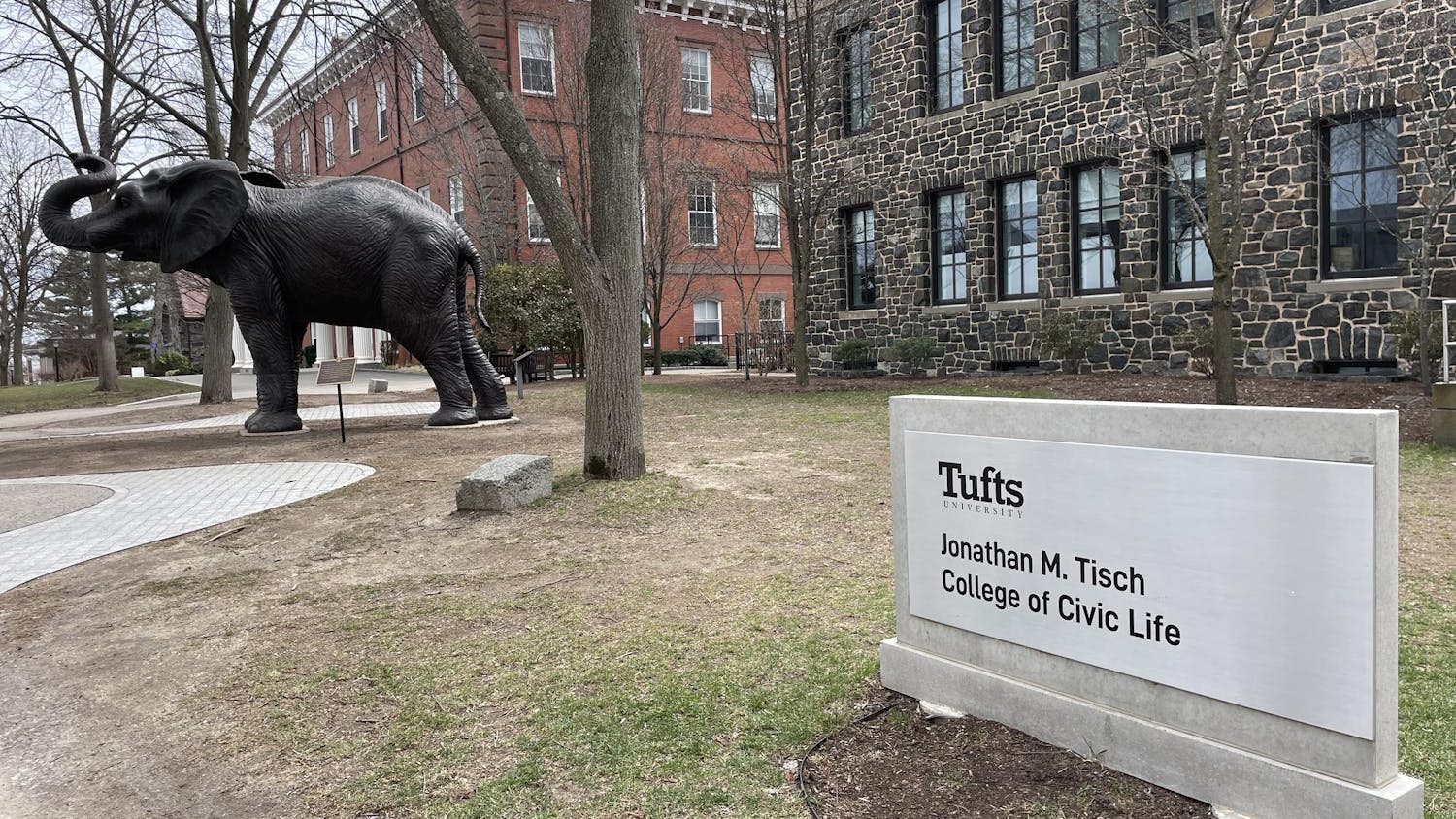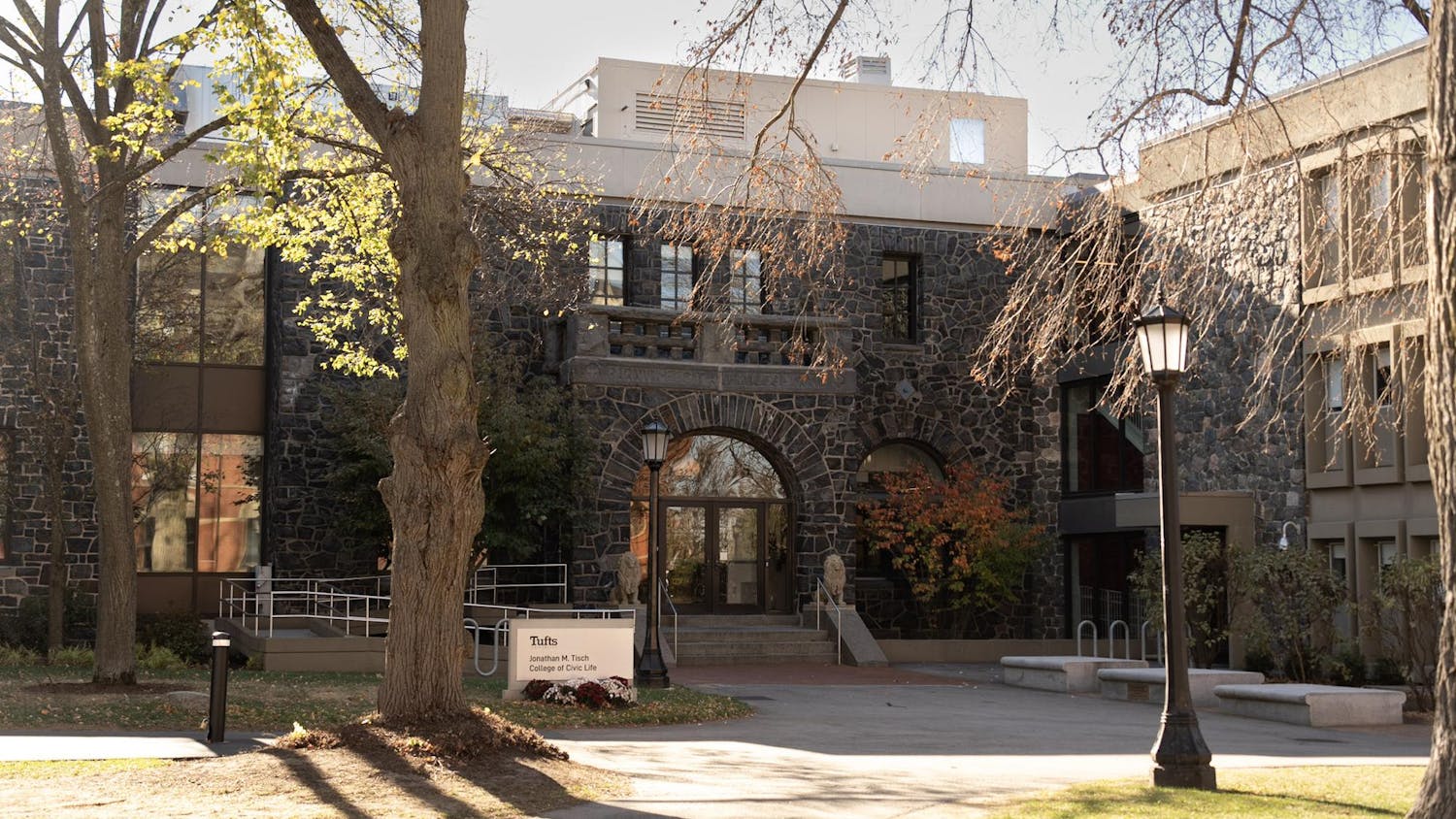In a U.S. District Court hearing in Boston Thursday afternoon, lawyers for Rümeysa Öztürk argued over the presiding Massachusetts judge’s jurisdiction over Öztürk’s case while a lawyer from the Department of Justice argued it should be transferred to a court in Louisiana, where Öztürk is currently being held.
Öztürk’s lawyers presented 23 affidavits in support of her release to the U.S. District Judge Denise Casper, including one signed by University President Sunil Kumar.
When Öztürk, a Tufts doctoral student and Turkish national, was detained March 25 by federal authorities, she was transported to New Hampshire and then Vermont within hours of her apprehension. Öztürk was moved without notice to her legal counsel.
Immigration and Customs Enforcement had already transported Öztürk to New Hampshire when a judge — without knowing that Öztürk was no longer in Massachusetts — ordered, on the evening of March 25, against her removal from the state without proper notice.
The lawyer representing President Donald Trump’s administration, Mark Sauter, argued that the filed petition is void because it listed Patricia Hyde, the ICE Boston acting field office director, as Öztürk’s “immediate custodian” and respondent of the petition. The Department of Justice argued that the correct respondent would have been an officer in direct custody of Öztürk in Vermont.
Adriana Lafaille, an attorney from the American Civil Liberties Union, now part of Öztürk’s legal counsel, represented Öztürk at the Thursday hearing. Lafaille argued that the “unusual” circumstances of Öztürk’s detainment warrants a standard “unknown custodian” exception to the petition, since her legal team had no way of knowing her true location.
Even if such an exemption wasn’t valid, Öztürk’s lawyers argued that Hyde, as the Boston regional field director, had only relinquished custody once Öztürk was in Louisiana and was thus the right respondent for the petition.
Her lawyers argued that ICE moved Öztürk abnormally fast in order to prevent her legal team from filing a more accurate petition — all in a bid to “forum shop,” and move the case to a court with a stricter attitude on immigration.
Although ICE generally keeps detainees in a Massachusetts facility for at least 12 hours before moving them, lawyers said Öztürk had been moved to New Hampshire within three hours of her arrest. The judge, pointing out that the unprecedented speed with which Öztürk was moved, asked the defense to respond.

ACLU attorney Adriana Lafaille and Legal Director Jessie Rossman walk past a crowd of protestors outside a U.S. District Court in Boston on Thursday.
The lawyer for the Trump administration said that “the driving force to move” Öztürk out of the state was that “there was no detainment center to hold a female detainee in Massachusetts.”
“Those decisions were made prior to her arrest,” Sauter said, revealing that ICE preplanned Öztürk’s move to Louisiana.
Though Sauter held that no facility in Massachusetts could hold female detainees, Lafaille said that “there is reason to believe” there was still possible holding space for Öztürk within the New England area.
Considering the possibility of Casper precluding her own jurisdiction, Sauter said that Öztürk’s case may only be tried in Louisiana — the “final destination” of her transfer — as opposed to Vermont. “There’s only one place where the petition could have been filed and that’s the Western District of Louisiana,” he said.
Lafaille said that the government’s argument against the amended habeas corpus “sets a strange and dangerous precedent.” If Casper rules in favor of the court’s jurisdiction, Öztürk’s counsel argued, she should be transferred from Louisiana to Vermont, if not to Massachusetts.
“The court doesn’t need to ignore the context in which this was happening,” Lafaille said, citing Columbia graduate student Mahmoud Khalil’s case, among others where academics are seemingly punished for pro-Palestinian activism.
Outside the courthouse, around 50 people protested in support of Öztürk during the hour-long hearing. Öztürk’s lawyers spoke during a press conference against a backdrop of protestors, with her attorney, Mahsa Khanbabai, reading a statement provided by Öztürk earlier that morning.
“My life is committed to choosing peaceful and inclusive ways to meet the needs of children,” Khanbabai said, reading for Öztürk, who is working toward a Ph.D. in the Tufts Eliot-Pearson Department of Child Study & Human Development. “Writing is one of the most peaceful ways of addressing systemic inequality. Efforts to target me because of my op-ed in the Tufts Daily calling for the equal dignity and humanity of all people will not deter me from my commitment to advocate for the rights of youth and children.”
According to her amended petition, Öztürk’s initial immigration hearing was scheduled for Monday, April 7. “For reasons that are not known to us, the hearing was cancelled,” Lafaille said at the press release.
Reyyan Bilge, an attendee of the hearing who spoke outside the court, has known Öztürk for over a decade. A student at Tufts from 2003 to 2009, Bilge met Öztürk in Turkey and published academic papers with Öztürk as her professor. She wrote Öztürk’s recommendation letters for Columbia University and for her Fulbright scholarship.
“She’s a really lovely person, not only to be around, but to work with, because she’s really responsible and really passionate about her work,” Bilge said to the Daily. “So over the years, it was really easy for me to write all those recommendation letters.”
Bilge said that knowing ICE had already planned Öztürk’s quick movement from state to state was “really chilling” when combined with Öztürk’s inability to reach her lawyers.
“Just imagine for a second that this is your loved one, your sister, your niece,” Bilge said, suggesting that if Öztürk had not been on the phone when detained and the event had not been recorded, “she would be in thin air. She would disappear.”






